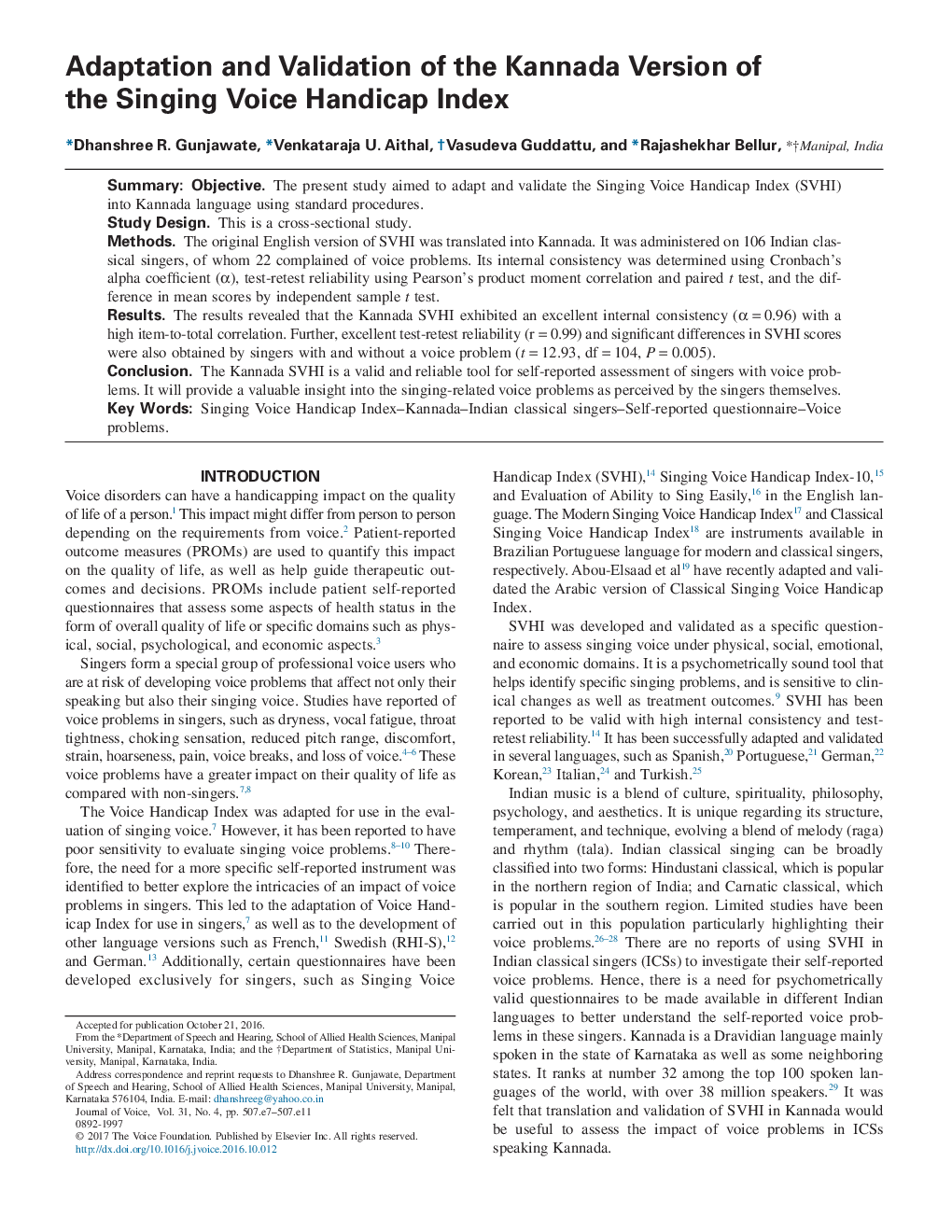| کد مقاله | کد نشریه | سال انتشار | مقاله انگلیسی | نسخه تمام متن |
|---|---|---|---|---|
| 5124186 | 1378440 | 2017 | 5 صفحه PDF | دانلود رایگان |
SummaryObjectiveThe present study aimed to adapt and validate the Singing Voice Handicap Index (SVHI) into Kannada language using standard procedures.Study DesignThis is a cross-sectional study.MethodsThe original English version of SVHI was translated into Kannada. It was administered on 106 Indian classical singers, of whom 22 complained of voice problems. Its internal consistency was determined using Cronbach's alpha coefficient (α), test-retest reliability using Pearson's product moment correlation and paired t test, and the difference in mean scores by independent sample t test.ResultsThe results revealed that the Kannada SVHI exhibited an excellent internal consistency (αâ=â0.96) with a high item-to-total correlation. Further, excellent test-retest reliability (râ=â0.99) and significant differences in SVHI scores were also obtained by singers with and without a voice problem (tâ=â12.93, dfâ=â104, Pâ=â0.005).ConclusionThe Kannada SVHI is a valid and reliable tool for self-reported assessment of singers with voice problems. It will provide a valuable insight into the singing-related voice problems as perceived by the singers themselves.
Journal: Journal of Voice - Volume 31, Issue 4, July 2017, Pages 507.e7-507.e11
